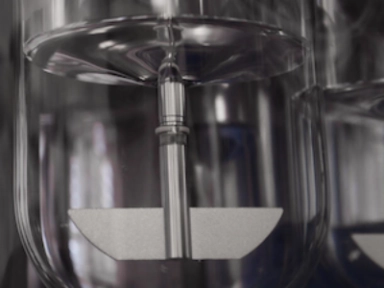Odyssey Outcomes - Total Events Analysis

Alirocumab reduces total nonfatal cardiovascular and fatal events the Odyssey Outcomes trial.
Michael Szarek, Harvey D White, Gregory G Schwartz, Marco Alings, Deepak L Bhatt, Vera A Bittner, Chern-En Chiang, Rafael Diaz, Jay M Edelberg, Shaun G Goodman, Corinne Hanotin, Robert A Harrington, J Wouter Jukema, Takeshi Kimura, Robert Gabor Kiss, Guillaume Lecorps, Kenneth W Mahaffey, Angèle Moryusef, Robert Pordy, Matthew T Roe, Pierluigi Tricoci, Denis Xavier, Andreas M Zeiher, Ph Gabriel Steg, Odyssey Outcomes Committees and Investigators.
Objective
This pre-specified analysis determined the extent to which alirocumab reduced total (first and subsequent) nonfatal cardiovascular events and all-cause deaths in Odyssey Outcomes.
Methods
The Odyssey Outcomes (Evaluation of Cardiovascular outcomes after an Acute Coronary Syndrome during treatment with Alirocumab) trial compared Alirocumab with placebo, added to high-intensity or maximumtolerated statin treatment, after Acute Coronary Syndrome (ACS) in 18,924 patients. Patients were aged ≥40 years with an ACS 1–12 months before randomization. Qualifying patients had persistent dyslipidemia [LDL-C ≥ 70 mg/dL (1.81 mmol/L), non high-density lipoprotein cholesterol (non-HDL-C) ≥ 100 mg/dL (2.59 mmol/L), or apolipoprotein B ≥ 80 mg/dL] despite treatment with atorvastatin 40–80 mg daily, rosuvastatin 20–40 mg daily, or the maximumtolerated dose of one of these statins.
Participants were randomly assigned (1:1) to receive alirocumab 75 mg or matching placebo subcutaneously every 2 weeks.
Endpoints
The primary efficacy endpoint of the study was time to first occurrence of coronary heart disease death, nonfatal myocardial infarction, fatal and nonfatal ischemic stroke, or unstable angina requiring hospitalization. Nonfatal cardiovascular events recorded in the trial included nonfatal primary endpoints, hemorrhagic stroke, heart failure requiring hospitalization, and ischemia-driven coronary revascularization. Events included in the primary analysis of the present report were all-cause death and total nonfatal cardiovascular events.
Results
Patients were followed for survival for a median of 2.8 years (quartile 1, quartile 3: 2.3, 3.4 years), consisting of 27,014 patient-years for the alirocumab group and 26,915 patient-years for the placebo group.
With 3,064 first and 5,425 total events, 190 fewer first and 385 fewer total nonfatal cardiovascular events or deaths were observed with alirocumab compared with placebo. Alirocumab reduced total nonfatal cardiovascular events (hazard ratio: 0.87; 95% confidence interval: 0.82 to 0.93) and death (hazard ratio: 0.83; 95% confidence interval: 0.71 to 0.97) in the presence of a strong association between nonfatal and fatal event risk.
Conclusion
In patients with ACS, the total number of nonfatal cardiovascular events and deaths prevented with alirocumab was twice the number of first events prevented. Consequently, total event reduction is a more.
comprehensive metric to capture the totality of alirocumab clinical efficacy after ACS.
- Szarek, M., White, H.D., Schwartz, G.G., Alings, M., Bhatt, D.L., Bittner, V.A., Chiang, C.E., Diaz, R., Edelberg, J.M., Goodman, S.G. and Hanotin, C., 2019. Alirocumab reduces total nonfatal cardiovascular and fatal events: the ODYSSEY OUTCOMES trial. Journal of the American College of Cardiology, 73(4), pp.387-396.


